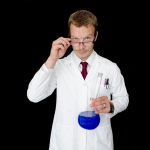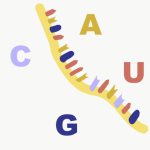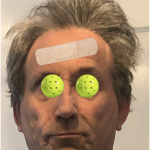Garlic is an enormously popular spice and food ingredient. But have you ever noticed that hours after someone eats it, their breath starts to smell strangely funky? And there's no sense in grabbing for the mouthwash; it won't do a thing. What is going on here?
Chemicals & Chemistry
I have previously authored many articles about per- and polyfluroalkyl substances (PFAS), also known as “forever chemicals,” and the misinformation and lack of scientific credibility surrounding them. However, Europe has outdone the U.S. on the absurdity of their proposed regulations on these chemicals. On February 7, 2023, the European Chemicals Agency (ECHA) proposed to ban all PFAS, which would affect more than 12,000 chemicals. To do this, they used a definition of PFAS so broad that it includes almost any chemical that contains fluorine [1]. What is going on?
New Covid variants are once again emerging, suggesting that a late summer surge is imminent. Why does this keep happening? Some of it can be explained by a simple chemical reaction that would be taught in any standard organic chemistry course.
It's no secret that pickleball is a national craze. But, how many chemists are willing to try it and not only write about their experience but also the chemistry of the ball?
Recent breakthroughs in stem-cell have raised the prospect of one day "breeding" humans and growing organs in a lab. How realistic are these scenarios? Netflix just released an embarrassing miniseries about the opioid epidemic. Let's take a closer look at the show's claims.
If alien life does not resemble ET or the Lead Alien in the eponymous movie, how will we recognize them once we meet? Assembly theory may offer a clue.
"Painkiller" is a textbook example of a show clearly meant to sway public perceptions on a critical public health issue — even if that means lying to viewers along the way.
On July 20, the American Chemistry Council (ACC), the principal trade association for the chemical industry in the U.S., sued the EPA and the National Academies of Sciences, Engineering, and Medicine (NASEM) over the EPA’s 2022 draft IRIS Assessment on Formaldehyde. Lawsuits against the EPA are not unique, but those including NASEM are another story.
The International Agency for Research on Cancer's (IARC) conclusion that the sweetener aspartame "possibly" causes cancer is ... definitely stupid. Meanwhile, you can eat a diet consisting of 91 percent "ultra-processed" food and be healthy. So says a new study. Let's take a closer look.
There's a codeine analog with a strange name: "Thebacon." How does one pronounce this? Is it useful? And are there other obscure chemicals with meat-containing names? And A Dreaded Chemistry Lesson From Hell (TM) for no extra charge.
A new health scare is brewing as reporters speculate about the cancer risk of consuming the sweetener sucralose. Is there any evidence behind the panic? No. A team of scientists recently argued that it's time for oil companies to pay reparations for causing climate change. Let's take a critical look at their claims.
Chemistry is hard enough to understand. But this already-convoluted field of science can be even worse because of some stuff that defies logic. Here are five examples.











